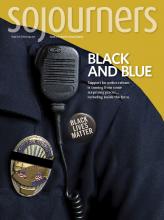THE ROLE AND identity of the minister has always been complex: Preacher and teacher, pastor and prophet, counselor and social worker. Despite this inherent dynamism, church structures—seminaries, congregations, denominations—often focus on transforming diverse candidates for ministry into a uniform class of spiritual professionals equipped to serve Christ in a bygone era. Responding to the challenges facing congregations today involves hearing and sharing the gospel in fresh ways, which requires a revolution in how ministers understand themselves and the training they receive.
Cynthia G. Lindner’s Varieties of Gifts does not read like a revolutionary text, but it is iconoclastic. While Lindner does not argue directly with the many books on pastoral leadership encouraging conformity to a specific mold, she gently brushes them away with a thoroughly postmodern conception of the “well-lived pastoral life.” Drawing on insights from dialogical psychology, which highlights the “multiplicity” of the human self, Lindner brings attention to the diverse talents and perspectives of aspiring and seasoned pastors. Too often this plurality is perceived as vocational ambivalence or personal confusion—an obstacle to be overcome in the modern quest to create a unified, coherent sense of self. Yet this pursuit of a single identity deprives ministers of important resources, limiting both their professional effectiveness and satisfaction.
Varieties of Gifts seeks to end this repression and embrace the minister’s natural multiplicity. Lindner believes this path leads to the realization of untapped potential at a moment when religious institutions are desperate to discover new and different ways of being faithful. She writes, “effective ministers have always inhabited plural roles and multiple selves which have funded the flexibility and inventiveness that religious leadership demands over the long haul.” Thus, the internal tensions of the minister’s life (How do I serve this community as both prophet and priest? How do I remain authentic while embodying a role defined by perception?) become a resource in the pursuit of excellence rather than a distraction that promises to lead one astray.
Read the Full Article

